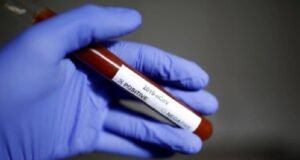 Junior doctors have been urged to return to the negotiating table by Health Secretary Jeremy Hunt, who described their strike as “completely unnecessary”.
Junior doctors have been urged to return to the negotiating table by Health Secretary Jeremy Hunt, who described their strike as “completely unnecessary”.
NHS England said about 10,000 junior doctors had reported for duty out of 26,000 scheduled to work the day shift.
Junior doctors in England are staging a 24-hour walkout, which began at 08:00 GMT, in a dispute over a new contract.
The BMA said the strike sent a “clear message” to the government.
“Junior doctors in their thousands have made it quite clear what they think of the government’s plans to impose contracts in which junior doctors have no confidence,” said Dr Johann Malawana, chair of the British Medical Association junior doctors’ committee.
“We deeply regret the level of disruption caused, but this is a fight for the long-term safety of patients and junior doctors’ working lives.”
Katherine Murphy, chief executive of the Patients Association, called for continued discussions, saying “both sides must remember that their first concern must always be to patients, who deserve much better than this”.
NHS England said more than 3,300 operations had been cancelled – about one in 10 of those planned.
Several hundred more operations have been impacted in the days before and after the strike.
There are more than 55,000 junior doctors in England, a third of the medical workforce, although just over 37,000 are BMA members.
Junior doctors are providing only emergency cover during the industrial action.
BBC health correspondent Nick Triggle said it was thought many of the 10,000 doctors who turned up were medics who had agreed to work to cover emergency care, although a few thousand were also likely to be doctors who were not members of the BMA and did not take part in strike action.
Mr Hunt said the number that had gone into work showed “the values of the vast majority of junior doctors”.
“In the end this is a completely unnecessary dispute,” he said.
“We have some disagreements with the BMA over pay. But we all want to promise every patient who uses the NHS the promise of the same high-quality care every day of the week.
“And at the moment we have an NHS where if you have a stroke at the weekends, you’re 20% more likely to die. That can’t be acceptable.”
The row between junior doctors and the government is over a new contract
Talks broke down in 2014, but the dispute has escalated since the summer after ministers said they would impose the deal
Ministers offered doctors an 11% rise in basic pay last year, but that was offset by curbs to other elements of the pay package, including payments for unsociable hours – they have maintained there is not extra money for junior doctor pay
The government says the changes are needed to create more seven-days services, but the BMA warns safeguards to keep a lid on excessive hours are being weakened
The union balloted its members in the autumn, and 98% of those who voted backed strike action
Talks restarted in December, leading to three days of strikes being called off, but these have so far failed to reach a breakthrough, which is why strikes are taking place
Don't Miss
- Tk 26 lakh crore looted in name of development: Jamaat Ameer
- No election bid for ICT convicts: Attorney General
- One killed, 11 injured in Sylhet road mishap
- Bangladesh rout Turkmenistan 7-0 to seal spot in AFC Women’s Asian Cup
- Government funding supports borough-wide resurfacing to extend road life and cut carbon emissions
 Weekly Bangla Mirror | Bangla Mirror, Bangladeshi news in UK, bangla mirror news
Weekly Bangla Mirror | Bangla Mirror, Bangladeshi news in UK, bangla mirror news







